The Michigan Tech Distinguished Teaching Award is presented annually. Since 1982, an award has been given in each category: 1. Associate Professor or Professor and 2. Lecturer, Professor of Practice, or Assistant Professor. Based on more than 50,000 student rating of instruction responses, 12 finalists have been identified for the 2018 awards. Out of the 12 finalists, 4 of them are from the Department of Biological Sciences!
This year’s finalists are:
Assistant Professor / Lecturer / Professor of Practice Category
- Andrew Barnard (MEEM), Assistant Professor
- Lisa Johnson de Gordillo (VPA), Assistant Professor
- Heather Knewtson (SBE), Assistant Professor
- Brigitte Morin (Bio Sci), Senior Lecturer
- Stephen Techtmann (Bio Sci), Assistant Professor
- Ebenezer Tumban (Bio Sci), Assistant Professor
- Jeffrey Wall (SBE), Assistant Professor
Associate Professor / Professor Category
- Andrew Burton (SFRES), Professor
- Ann Maclean (SFRES), Professor
- Amy Marcarelli (Bio Sci), Associate Professor
- Christopher Webster (SFRES), Professor
- Richelle Winkler (Soc Sci), Associate Professor
This is the second year in a row that Brigitte Morin has been nominated for the award. She instructs foundation courses in our Medical Laboratory Science program and has also created a popular new course on the practice and science of yoga. Stephen Techtmann teaches environmental and advanced microbiology courses. Ebenezer Tumban teaches our general microbiology and virology courses. Amy Marcarelli teaches a variety of ecology courses and created a new professional development course for graduate students in science.
The William G. Jackson Center for Teaching and Learning seeks input for the finalists. Comments on the nominees are due by Monday, March 26, and can be completed online. The process for determining the Distinguished Teaching Award recipients from this list of finalists also involves the additional surveying of their spring classes.
The selection committee makes the final determination of the award recipients. The 2018 Distinguished Teaching Awards will be formally announced in May.

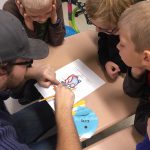


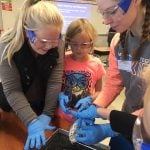
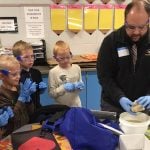


 The International Association of Bryologists dedicated its most recent issue of Bryophyte Diversity and Evolution to
The International Association of Bryologists dedicated its most recent issue of Bryophyte Diversity and Evolution to 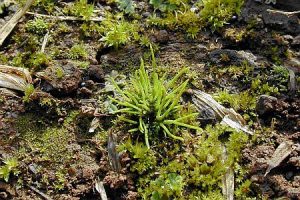
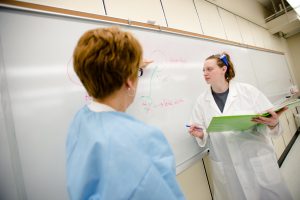 Heartiest congratulations to the following faculty, staff and graduate students from Biological Sciences Department who have been identified as one of instructors who received an exceptional “Average of 7 Dimensions” student evaluation scores during the 2016-17 academic year. Their scores were in the top 10% of similarly sized sections university-wide that had at least a 50% response rate.
Heartiest congratulations to the following faculty, staff and graduate students from Biological Sciences Department who have been identified as one of instructors who received an exceptional “Average of 7 Dimensions” student evaluation scores during the 2016-17 academic year. Their scores were in the top 10% of similarly sized sections university-wide that had at least a 50% response rate.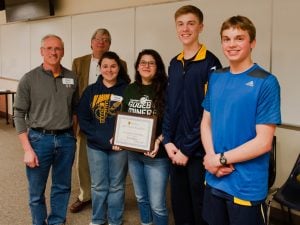 The 28th annual Department of Biological Sciences Bioathlon for high school biology students was held on Wednesday at Michigan Tech. Simultaneously, a workshop was held for the accompanying biology teachers.
The 28th annual Department of Biological Sciences Bioathlon for high school biology students was held on Wednesday at Michigan Tech. Simultaneously, a workshop was held for the accompanying biology teachers.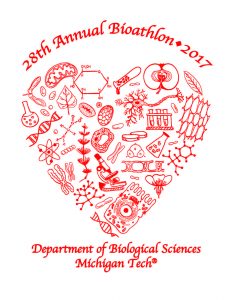
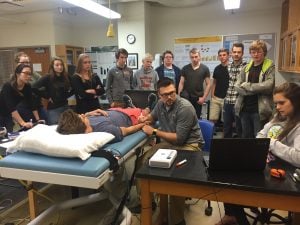
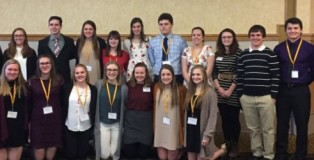

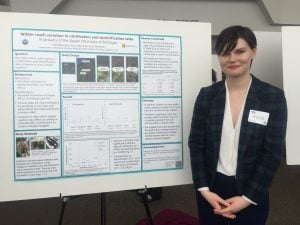
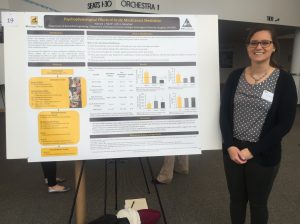 Hannah Marti from
Hannah Marti from 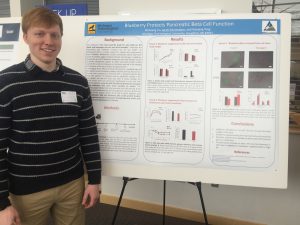
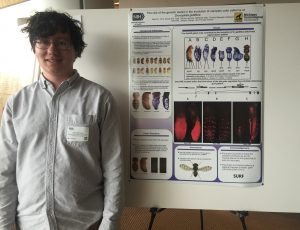 David Trine from
David Trine from